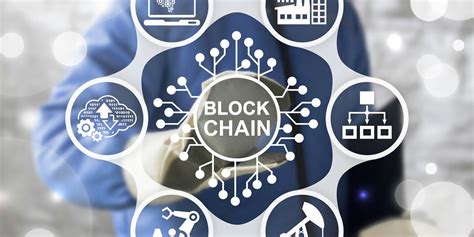AI-Enhanced Blockchain Solutions for Real-World Problems
The integration of artificial intelligence (AI) and blockchain technology is changing the way we approach complex real-world problems. By leveraging the strengths of both, organizations can create innovative solutions that drive business value, improve efficiency, and enhance customer experience.
What are AI-based blockchain solutions?
AI-enhanced blockchain solutions use machine learning algorithms to analyze vast amounts of data, identify patterns, and make predictions or take actions in real time. These solutions often integrate multiple blockchain platforms, enabling seamless interaction between different networks and facilitating the creation of decentralized applications (dApps).
Real-world applications:
- Supply chain optimization: Blockchain solutions based on AI can track inventory levels, detect discrepancies, and optimize supply chain logistics in real time.
- Identity Verification: Blockchain-based identity verification systems enable secure authentication and management of personal data across organizations.
- Healthcare Records Management

: AI-enhanced blockchain solutions can securely store, manage, and analyze medical records, enabling faster patient diagnosis and treatment.
- Financial Inclusion: Blockchain-based financial inclusion platforms provide affordable access to banking services for underserved communities.
- Cybersecurity: Blockchain solutions powered by AI can detect and respond to cyber threats in real time, improving the overall cybersecurity posture.
Benefits:
- Improved Efficiency: AI-enhanced blockchain solutions streamline processes, automate tasks, and reduce manual errors.
- Enhanced Security: Blockchain technology provides a secure platform for storing and transmitting data, reducing the risk of breaches and cyberattacks.
- Enhanced Transparency: AI-powered blockchain solutions enable transparent tracking and management of transactions, assets, and data.
- Better Decision Making: Real-time insights from AI-powered blockchain solutions inform strategic decisions, optimize business processes, and drive innovation.
Real-world examples:
- Visa’s Blockchain-Based Identity Verification Solution: Visa is using blockchain technology to create a secure identity verification system for its customers worldwide.
- IBM’s Blockchain-Based Supply Chain Management Solution: IBM is developing a blockchain-based platform that optimizes supply chain logistics and reduces inventory risk.
- Mitsubishi Electric’s AI-Enhanced Blockchain Solution: Mitsubishi Electric is using AI-enhanced blockchain solutions to improve production efficiency, reduce waste, and enhance product quality.
Challenges and Opportunities:
- Regulatory Frameworks: The regulatory environment for AI-enhanced blockchain solutions is rapidly evolving, requiring organizations to comply with complex rules and regulations.
- Data Security: Ensuring the security of sensitive data in AI-enhanced blockchain solutions is a significant challenge.
- Interoperability: Developing seamless interactions between different blockchain platforms requires innovative solutions that can adapt to different use cases.
Conclusion:
The integration of AI and blockchain technology presents unique opportunities to solve complex real-world problems. By leveraging machine learning algorithms, organizations can create innovative solutions that increase business value, improve efficiency, and enhance customer experience. As the regulatory environment continues to evolve, it is essential to address challenges such as data security and interoperability head-on.
Recommendations:
1.
